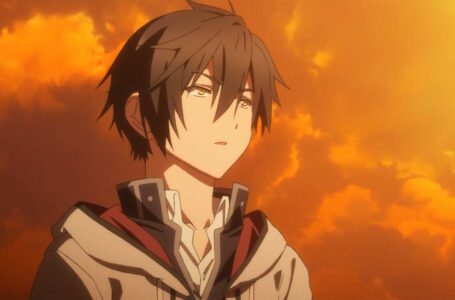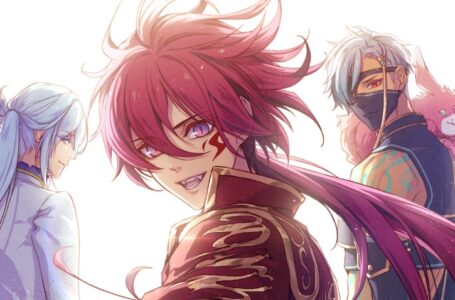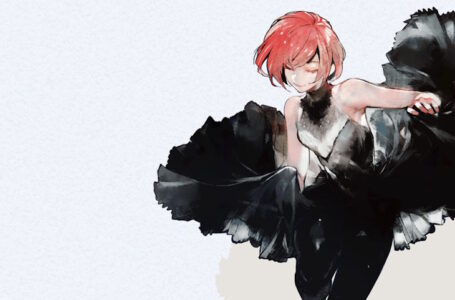Paradigm Paradox: a pretty disappointment
Paradigm Paradox is the latest localised otome title from Aksys Games. Despite being the only title from Aksys Games’ lineup to have had a mixed reception on its original release in Japan, we were tentatively excited for it here at Rice Digital. But after 35-odd hours with the game and having obtained all its endings, here’s our initial warning to you about Paradigm Paradox – it was not worth even that amount of time.
Here are our spoiler-free thoughts on Paradigm Paradox to better explain why we are so disappointed with it. Unlike the majority of my otome review coverage, this one will be shorter than usual because, frankly, I just want to wash my hands of it already.
Story synopsis and conceptualisation
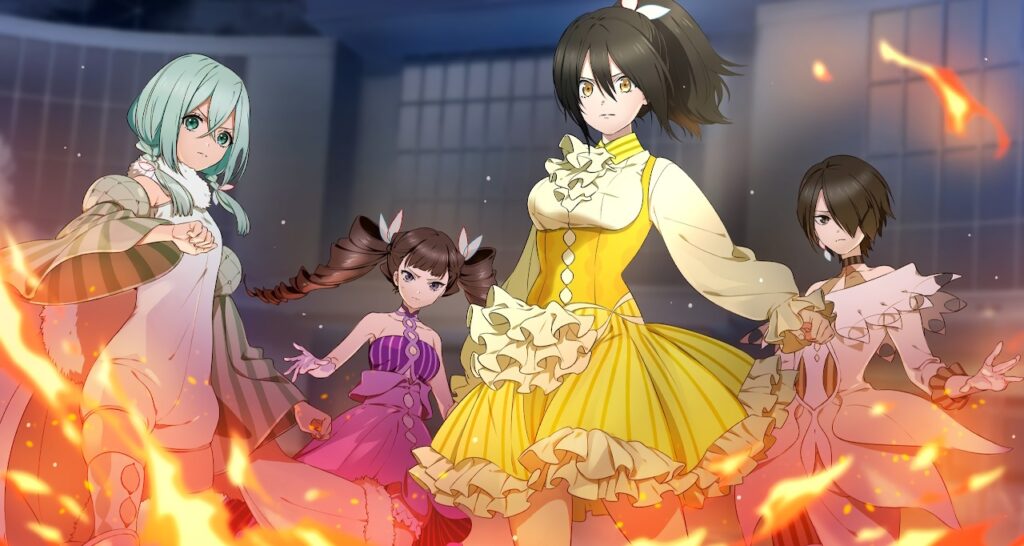
Paradigm Paradox follows heroine Yuuki Takanashi, a 16-year-old in the year of 25XX. Humans now live in colonies and are perpetually faced with the threat of Vectors, a tanky species that attacks those caught within their line of sight. The heroes of this world, a faction called the Blooms, work to stop each and every threat and protect humanity within Theta.
Yuuki becomes involved one night when she decides to go against the status quo in order to make her life more exciting. She gets a little more excitement than she bargained for when a group of Vectors ambush her the night she creeps out of her dormitory. Fortunately, she is saved by four magical girls. This fateful event subsequently leads Yuuki herself into joining the barracks as their newest recruit after her potential to become part of the Blooms is revealed.
Paradigm Paradox was created as a collaboration between Otomate and 8P, a “male voice actor project” that stemmed from an 8-member boy band. It seems that the themes of this game are well within their wheelhouse, considering how they surprised fans by cross dressing at a CD sale event of theirs in the past. Nonetheless, Paradigm Paradox certainly a distinctive pitch for an otome, with most of the love interests presenting as female in the common route before shedding these personas to reveal their true selves. But did it do anything interesting with such a peculiar set-up?
Heroine
It didn’t.
Yuuki at least leads Paradigm Paradox well as the heroine. She’s assertive and grounded. She not only has a good heart but has the confidence and sound judgement to stand by it with her own sense of morals and motivations. She also tends to be stubborn and even sassy in some routes, making for a few unexpectedly humorous scenarios and dialogue at times. I will say that her most memorable development was in Ibuki’s route, but that will probably come as no surprise.
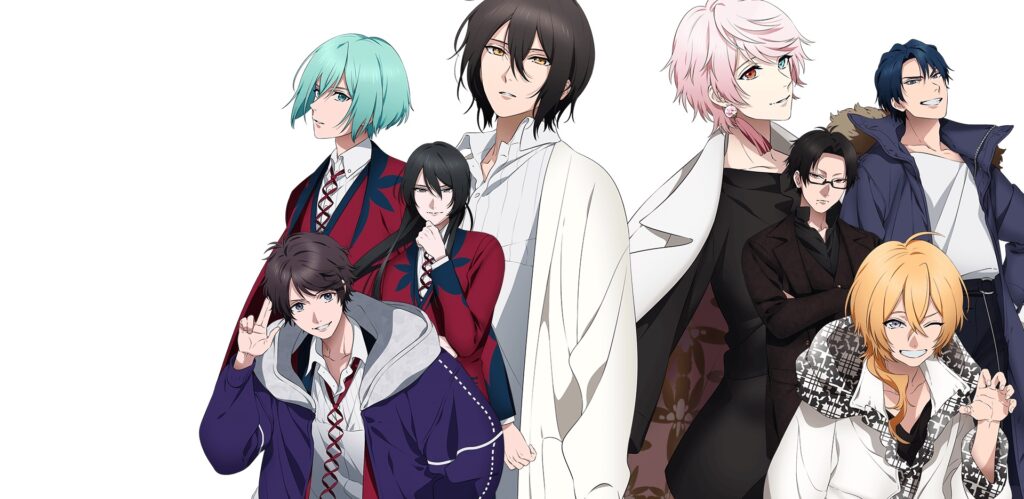
Love interests and routes
That is because Ibuki is the canon love interest, the chosen one who is shoved right into our faces straight out of the gate. Yuuki can’t even look at his female form without lusting, so there’s no denying the fated connection right there. It also does not help that Ibuki’s route feels like the only one to have had actual thought, proper development and polish in its storytelling; it’s one of the few routes where events, actions and consequences make sense.
Everyone else seems to serve as little as tickboxes for a bunch of expected character tropes for the genre, such as the childhood friend, the tsundere, the BFF female and even a siscon love interest. Uh-oh. But worse yet, there was barely even a common route to establish these characters as anything more than one-dimensional. The love interests themselves are instead presented with nothing nuanced about them. Things don’t improve in their routes, either; they lack in depth due to their run times constricting any possibility of exploration and characterisation.
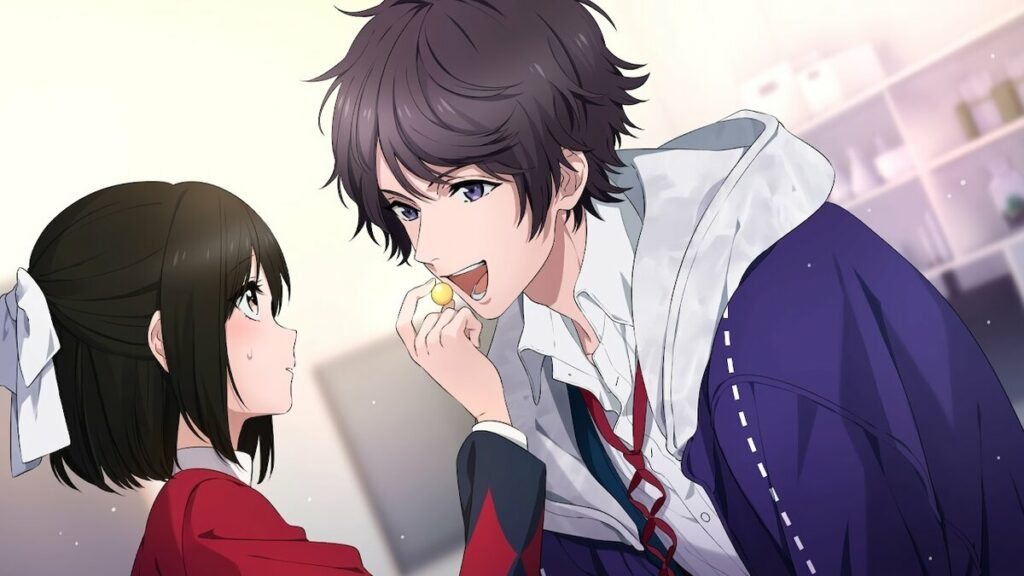
But it’s not all bad. Kamui had one of the better character arcs, with the writing that subverts the reasoning behind his flirtatious personality being a nice change for the genre for once. It actually had quite the emotional edge to it, even.
There is also Mihaya, whose route had a consistent theme of learning how to move on from guilt and accept loss. In this way, Mihaya and Yuuki had common ground – their relationship naturally developed from a solid foundation. Unfortunately, the game rarely tried making sense of how Yuuki bonded with the other love interests other than this instance. In fact, there was very little to zero romance in certain routes.
On the flip side if we completely ignore the main staple of the otome genre being romance for a moment, some of the love interests are hampered with a severe lack of story depth or a sense of character arcs unfolding. A few in particular needed their routes extended to make the growth of the character and bond with Yuuki more believable and better paced. This is the case with Yukinami especially; even not looking at it in a romantic sense, their relationship felt far too strained and unappealing, even by its good ending.
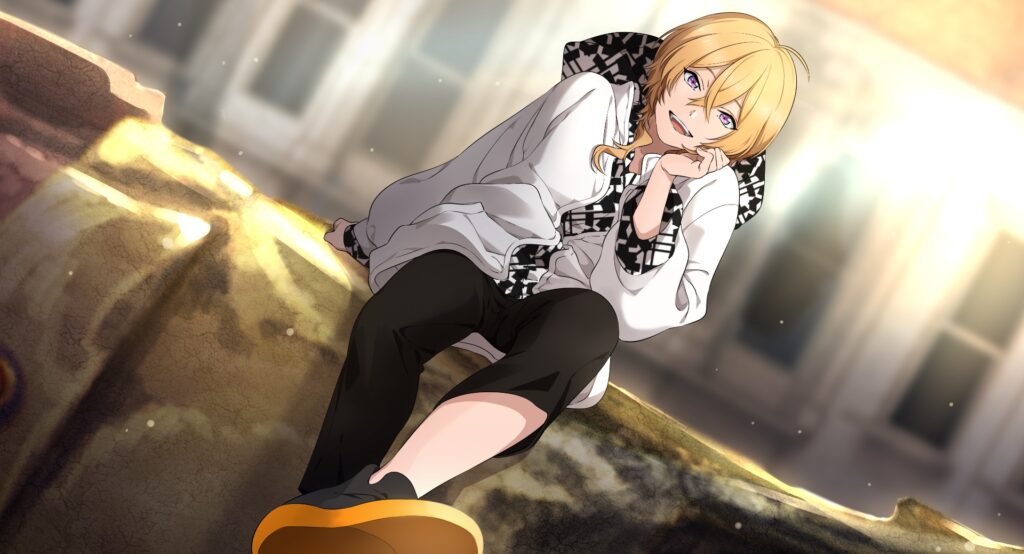
Romance is near on non-existent
The four villainous love interest characters had no romance to speak of. Their relationship with Yuuki is instead vaguely suggested or ends inconclusively, making the player feel an immense sense of dissatisfaction. Furthermore, not every love interest even gets a kiss CG. That’s bad enough for one route, but we’re talking about many here.
Furthermore, being able to select whether Yuuki becomes part of the heroes or villains is a superficial illusion of choice. Yuuki is a fundamentally good person, so even with the bad endings on the villains’ side, her joining in on certain decisions just came across as extremely bad writing. It just feels like forcing a bad end for the sake of including one, and even then, said bad endings feel underbaked, being over and done with in the blink of an eye. It’s incredibly unbelievable with zero payoff.
The villainous love interests themselves are sympathetic and are given reasons to explain away their motivations and intentions in an understandable way. They’re merely flaws, because in the end they, of course, become better people thanks to Yuuki, so them being inherently evil was never even on the cards. Given such an interesting premise, one would hope that they would go all the way with it — particularly with how dark some other otome titles can get — but Paradigm Paradox instead completely fails in presenting anything substantial and interesting with this supposed selling point.
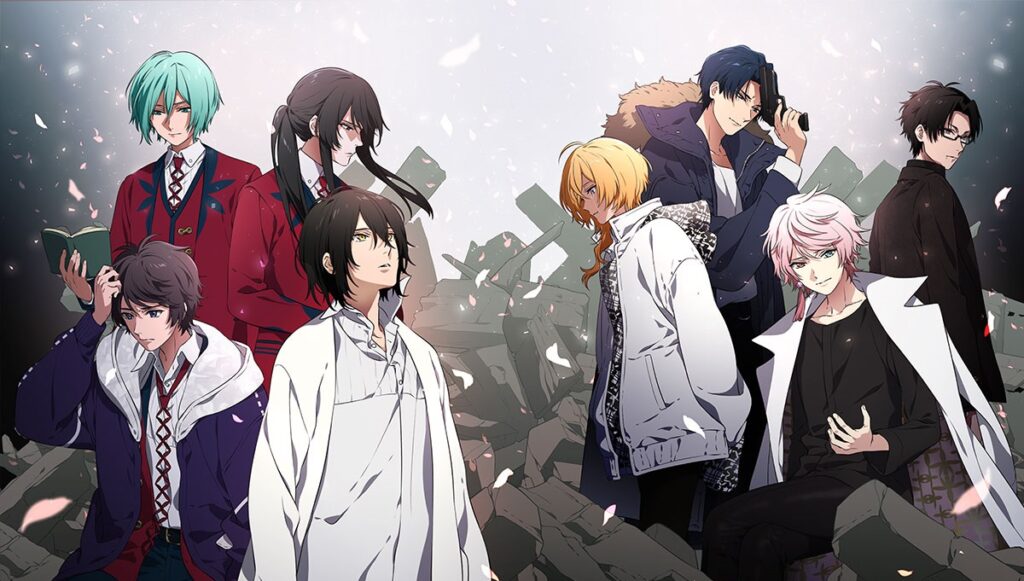
Simply put, a sense of chemistry and relationship development are severely lacking and poorly implemented throughout Paradigm Paradox. With flimsy character arcs that have little to no development, Yuuki has to merely say the right thing once in order to trigger a “life changing” mindset shift and change the love interest’s mentality for the better. This becomes the standard quickly, since so many routes end all too soon to make any sort of impact. Events force characters together to make it look like they have bonded when the build-up and progression simply was not there. Ayumu and his route was unbearable for this reason.
An insult to such a promising set-up and intriguing world
Almost everything about Paradigm Paradox feels low-effort and uneventful – bad endings are rushed with no build-up, only a few routes have story related plotlines, and story beats are repeated far too often. The latter point makes the majority of routes repetitive, with a certain aspect that rears its unwanted head all the time in the heroes’ routes being too farfetched and coincidental to be plausible. Even its good endings tend to just abruptly cut the story, giving an unsatisfying send-off to many routes.
Speaking of repetition, the major mysteries of the game are the identities of the four Blossom girls, the involvement of the other four love interests as villains and the origins of the Vectors. But be prepared to see the same answers for these get revealed route after route.
The pacing and storytelling are unbalanced in the divvying up of story events between all eight routes, and the game as a whole completely fumbles with the sheer potential of such an intriguing premise. Its worldbuilding is very lacking for a number of reasons, including a limited number of background illustrations continuously repeating and far too much exposition occurring in a handful of routes, where it could have instead beefed up the events of the most lacking ones.
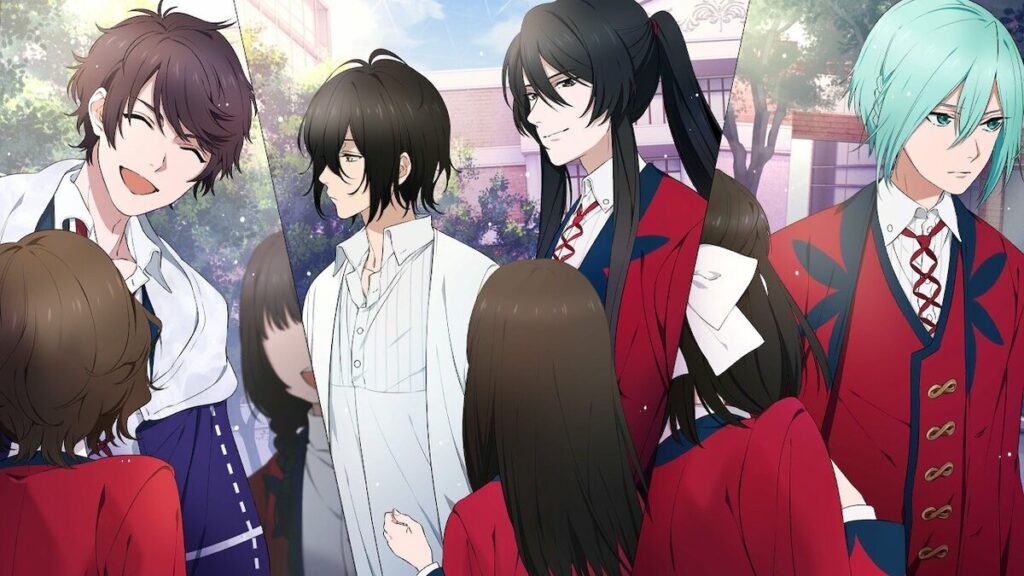
The issue of the pacing feels like it comes down to Paradigm Paradox trying to cram in so many love interests when the story material simply was not there to support such a big cast. Most of the routes are far too short, while only one feels like it has any real substance. It is a completely unbalanced experience with the game sometimes packing in loads of events all in one go, then otherwise boring you to death.
Then we have the finale. It was certainly nice to see how the game managed to bring everyone together for the grand conclusion, but it ends as soon as it starts. It plays out more like a brief epilogue than its own route. Up until this end point, conflicts are extremely tiresome and even in its grand closing, the bigger schemes and plot threads of the game are not given any real solid source. Perhaps most crucially, we’re lacking a major antagonist.
Other features
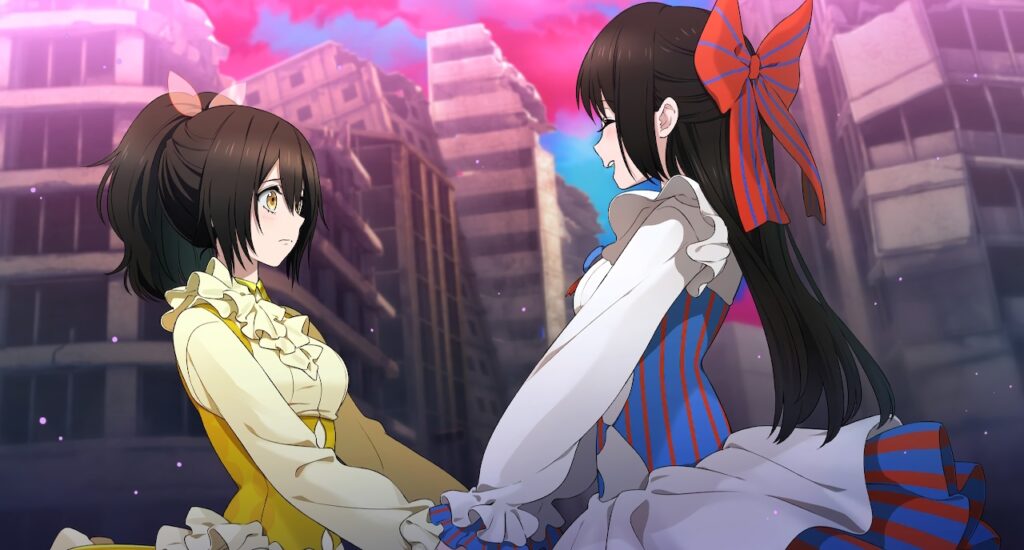
Before we close out, Paradigm Paradox’s UI and features are nothing new or to write home about. The game includes two gauges, one for affection levels and the other for ability or “sync rate”. A DNA indictor flashes across the screen when you have selected a choice that affects the sync rate gauge, or a flower appears if your affection increases from selecting the correct response. You can turn this “love vision” feature on or off, but with the routes being as short as they are, managing both meters to get the endings you want is a breeze.
Furthermore, its flowcharts make it obvious just how short the majority of the routes are when you look back on them. It does helpfully track when a CG appears in each chapter, however.
On a more positive note, the game’s overall translation was of high quality for the most part – a few typos and unfinished sentences did slip through the cracks here and there, though.
Grieving for an otome that could’ve been wholly unique and worthwhile
Paradigm Paradox is extremely unsatisfying. The best feature of it is its character designs, including some neat DNA-inspired aspects in keeping with the sci-fi theme, even subtly hinting at a specific major revelation. But everything else is so lacking and low-effort.
Side characters are few and far between, and every one is voiced, but none of these minor cast members get an on-screen appearance, which ultimately breaks the overall sense of immersion. This is especially tough to dismiss during the more action or plot heavy moments.
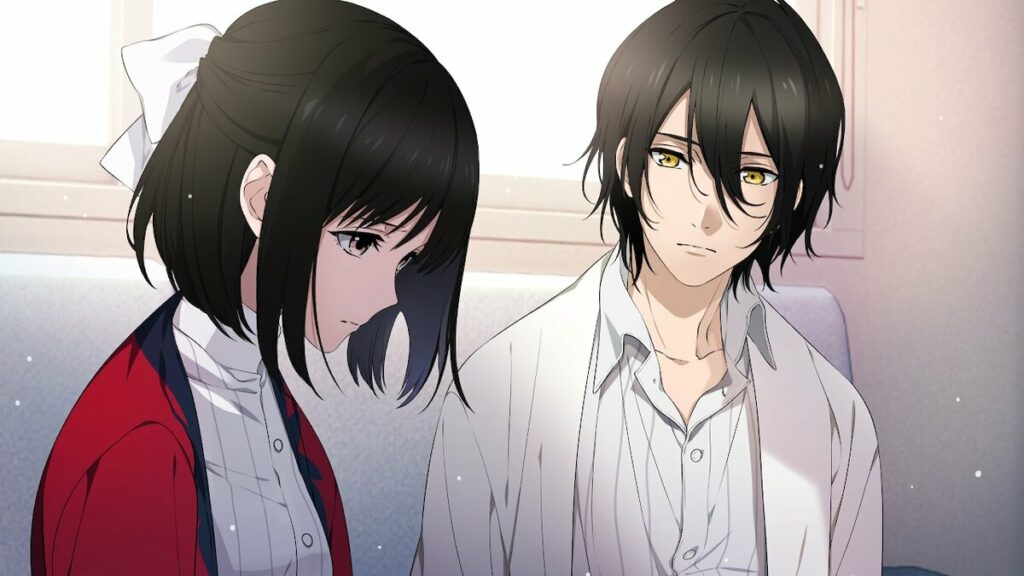
Its worldbuilding is troublingly poor for a title with such a strong premise and art direction, and everything comes across superficial, shallow and poor, especially in writing with most of its character arcs, development and overall storytelling never feeling substantial enough.
Paradigm Paradox is a poorly constructed otome, right down to its extras menu. The inclusion of each of these “bonus” sections does not make a lick of sense. The “interview” segments with the love interests feels uninteresting because we still barely know them really.
Paradigm Paradox had potential, and for this reason alone it makes me even more disappointed with the end result. My personal take on the game is if you have exhausted every other possible Switch otome, and I’m even including Dairoku: Agents of Sakuratani on this list, then you can give this game a go.
Paradigm Paradox should not be a priority for anyone otherwise, so definitely wait for a sale on this one if you are still interested in trying it for yourself. As of now, it’s sad to see that sci-fi otomes continue to drop the ball more often than not.
At least I can fondly think of this as “the bi otome game” — even if its intriguing setup did deserve so much better.
Join The Discussion
Rice Digital Discord
Rice Digital Twitter
Rice Digital Facebook
Or write us a letter for the Rice Digital Friday Letters Page by clicking here!
Disclosure: Some links in this article may be affiliate links, which means we may earn a small commission if you make a purchase after clicking on them. This is at no additional cost to you and helps support Rice Digital!
- Sigh of the Abyss: Shadow Bonds – Prologue Review - October 7, 2023
- Is She The Wolf? is wickedly addicting TV - October 6, 2023
- The steady consumption of Slow Damage - October 5, 2023




